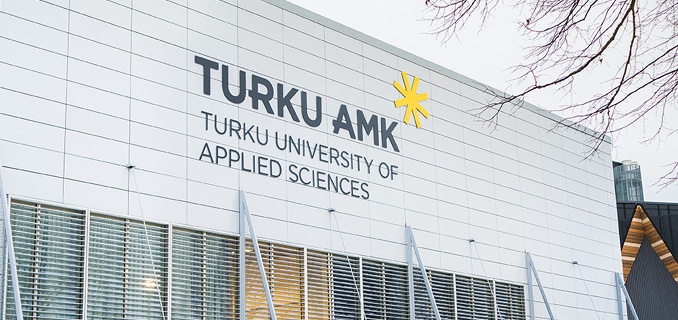Turku University of Applied Sciences is the first Finnish University to join the UAA!
Background
TUAS research group Futuristic interactive technologies have years of experience in research and collaboration for utilizing game technologies in various domains such as healthcare, technology industry, and tourism. We have utilized the Unity game engine for over a decade in gaming education and RDI activities. In the above-mentioned domains, we are utilizing XR technologies. From a research point of view, we typically apply user-centric and rapid prototyping principles. While testing solutions we focus on usability, and user experience studies and just lately more and more intensively also in effectiveness studies.
Because of COVID-19, we are asked to develop solutions for vocational and professional training. Together with our industrial partners, we aim to find solutions for hands-on training with authentic devices. We have seen that virtual reality is a promising technology to be used in simulation in challenging or even hazardous conditions or with expensive equipment. Just to name some examples we are focusing on developing innovative training solutions for ship command bridges (Markopoulos et al., 2020), and for fire safety (Oliva et al., 2019). Just lately we have also focused on finding alternatives for teleconferencing. More advanced solutions with social communication tools are needed for example in virtual exhibitions, and virtual conferences (Markopoulos P. et al., 2021).
We have cooperated with neuroscientists since 2015 when we started our cooperation in the research areas of virtual reality in driving inspection (Izullah et al., 2021). Just lately we have invested intensively (around 0.5M€) in VR, AR, and AI. This investment includes NVIDIA DGX-1 supercomputer, Leica BLK 360 laser scanner, over 50 VR headsets etc. We have for example almost ten VR headsets from Varjo which is at the moment manufacturing the most sophisticated VR headsets with bionic display, hand and eye-tracking sensors. Neuroscientists are more and more needed because of this technological progress. We have now devices (Varjo headsets) that can be used to monitor user behavior in virtual training and in virtual assessments. Combined with the iMotion platform (incl. various biosensors) we have a wide range of metrics available to understand better users’ decisions while training. At the moment we aim to compare above mentioned behavioral data with performance data collected during the gameplay (Markopoulos E. et al., 2021). Our performance monitoring system is designed based on neural networks – that is to say, we are using machine learning to train the system to detect mistakes (compared to ideal performance).
As already mentioned we have studied social communication in virtual exhibitions and conferences and how to apply avatar technologies in the metaverse context (Luimula et al., 2021). Our intention is to develop our own metaverse technology utilizing Unity, Mirror, and Data-oriented Technology Stack (DOTS). We have already been able to create a solution where tens (maybe even around 150) of trainees with VR headsets are able to participate in the same virtual training session. For us, the metaverse is a combination of social communication, hands-on experience and digital twin integration.
Why have TUAS joined the Unity Academic Alliance?
We have started game research in Turku already early 2000. Turku Game Lab in turn has been founded in 2009 as one of the first Finnish game labs owned by higher education institutes. Unity has been the main engine from the very beginning. Our game lab graduates have worked for Unity Ltd (Veli-Pekka Kokkonen & Juha Kiili – responsible to launch the first version of Unity 2D tools). We have quite large industrial cooperation with Finnish game companies. For example, Supercell cooperated with us while beta testing their Gunshine game prototype in 2010. Our graduates are nowadays widely working in significant positions or as entrepreneurs in the Finnish game industry.
Most of our industrial partners are using Unity for either entertainment games or applied game technology solutions. From RDI perspectives we can easily claim that Turku is one of the leading technology industry regions and Health Technology regions in Finland. And our university is one of the leading applied research institutions in Finland utilizing game technology in various domains. We have for example won various scientific awards (e.g. IEEE, Springer, and ACM conferences) and also the best-applied game award for 2018 in Finnish Game Awards 2019.
By joining the Unity Academic Alliance, we ensure
- Validated learning and competence material for Unity for Unity Educators
- Networking, development training and preparation to become Unity certified
- Boost the B.Eng program with Unity certification and improve the possibilities for better chances for internship and final thesis topics
- Improve the value in labor market of the graduates via Unity certification
Find Turku University of Applied Sciences here:
https://www.linkedin.com/school/turku-university-of-applied-sciences/
